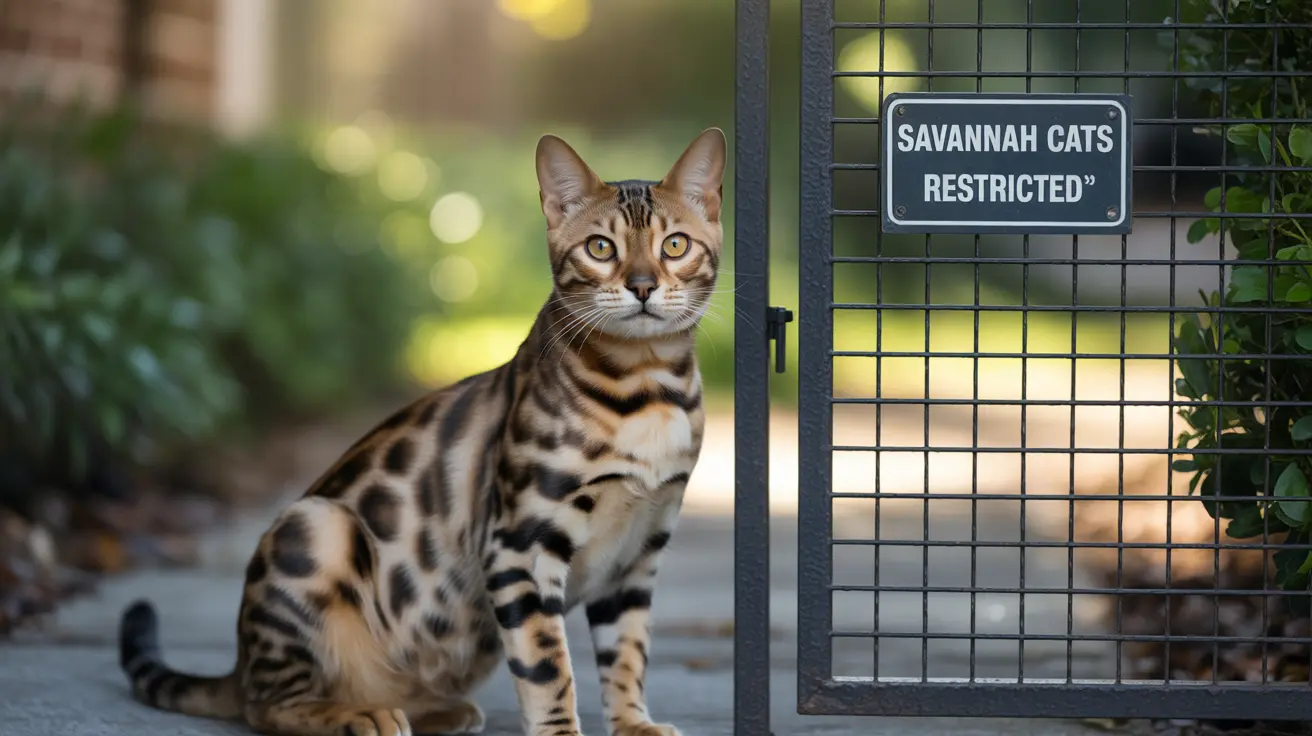Introduction
Are Savannah cats legal in Georgia? The short answer is no - these exotic hybrid cats are completely banned under Georgia state law. As striking and alluring as these serval-domestic cat crosses may be, Georgia maintains some of the strictest regulations in the United States regarding their ownership, with no exceptions for private pet ownership regardless of the cat's generation.
Whether you're considering adding a Savannah cat to your family or simply curious about exotic pet regulations in Georgia, this comprehensive guide will explain everything you need to know about the legal status of Savannah cats in the state, including why they're banned and what alternatives are available.
Current Legal Status in Georgia
Georgia law explicitly prohibits the private ownership of all Savannah cats, from first-generation (F1) hybrids to later generations (F4, F5, and beyond). This falls under Georgia Code § 27-5-4, which regulates the possession of wild animals and their hybrids. The ban is absolute for private pet ownership, with no exceptions or special permits available for individual pet owners.
The only legal pathway to keep Savannah cats in Georgia is through specific permits granted to:
- Licensed animal exhibitors
- Scientific research facilities
- Educational institutions
- Professional wildlife facilities
Understanding the Ban's Rationale
Georgia's strict stance on Savannah cats stems from several key concerns:
Public Safety
Early-generation Savannah cats can weigh up to 25 pounds and retain strong wild instincts from their serval ancestry. Their size and unpredictable behavior can pose risks to people, especially children, and other pets.
Environmental Protection
If released or escaped, Savannah cats could potentially:
- Threaten native wildlife populations
- Disrupt local ecosystems
- Interbreed with feral cat populations
- Create new hybrid populations in the wild
Animal Welfare
Savannah cats require specialized care, including:
- Large, secure living spaces
- Specific dietary requirements
- Enhanced environmental enrichment
- Expert handling and training
Penalties for Illegal Ownership
Breaking Georgia's Savannah cat laws can result in serious consequences:
- Immediate confiscation of the animal
- Substantial fines
- Possible criminal charges
- Potential imprisonment for repeat offenders
Legal Alternatives for Georgia Residents
For those interested in exotic-looking cats, Georgia does allow some alternatives:
- Bengal cats (F4 generation and beyond)
- Traditional domestic cat breeds with exotic appearances
- Volunteering at licensed wildlife facilities
Frequently Asked Questions
Are Savannah cats legal to own as pets in Georgia?
No, Savannah cats are completely illegal to own as pets in Georgia. The state maintains a strict ban on all generations of Savannah cats for private ownership.
What generations of Savannah cats are banned in Georgia, and are there any exceptions?
All generations of Savannah cats (F1 through F5 and beyond) are banned in Georgia. There are no exceptions for private pet ownership, regardless of the generation.
Can I obtain a permit to keep a Savannah cat in Georgia for private pet ownership?
No, permits for Savannah cats are only available to professional organizations like zoos, research facilities, and licensed exhibitors. Private individuals cannot obtain permits for pet ownership.
Why has Georgia banned Savannah cats, and what are the main safety and ecological concerns?
Georgia banned Savannah cats due to public safety concerns (their size and wild instincts), potential environmental impacts (threat to native wildlife), and animal welfare considerations (specialized care requirements).
How do Georgia's laws on Savannah cats compare to other U.S. states?
Georgia has some of the strictest laws, implementing a complete ban. Other states vary widely - some allow certain generations (F4 and beyond), while others have no restrictions at all.
Conclusion
While Savannah cats may be captivating creatures, Georgia's laws are clear and strict regarding their ownership. For those interested in exotic-looking cats, focusing on legal alternatives like Bengal cats or working with licensed facilities is the best path forward. Understanding and respecting these regulations helps ensure both public safety and animal welfare in the state.






